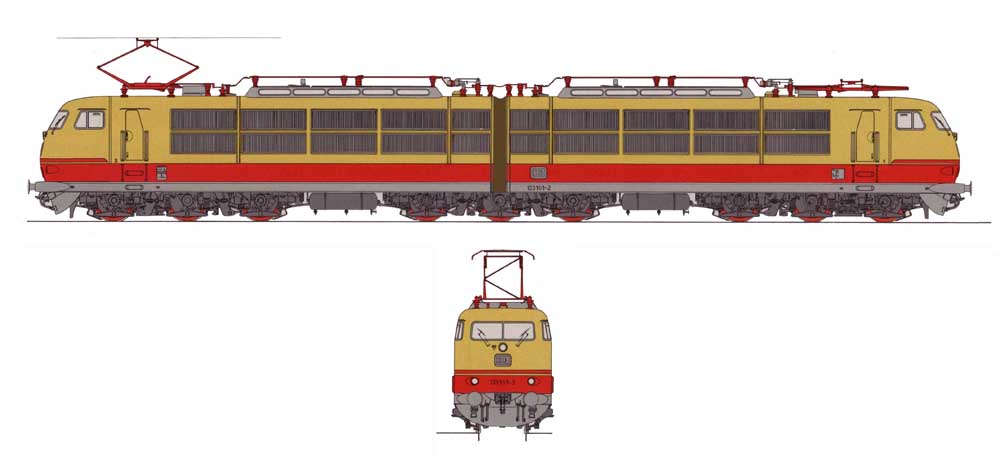



Country
Year
Class
Electric 15.000 V C.A. 16,3 Hz
Co'Co'Co'

The 60's were the years of the economic boom not only in Italy, but also in Germany.
These were the years when the Germans invaded the campsites of the Adriatic Riviera with their rulottes, tents, wuerstel, fried potatoes and large quantities of beer.
Engineer Emil Wurstleber of the LBA (Lokomotiven Bauamt - Central Office for Locomotive Construction) in Minden had the idea for this E133 during one of these rest periods (as extensively reported on the page "Fortschirft und Gemüsezucht" of the Mindener Tagesblatt dated August 18, 1967). These were the years in which the 03 (later 103) was entering service and the vision of our 636, 645, 646 certainly must have given a considerable boost to the creativity of the very serious engineer.
However, it is also likely that the project was inspired by the fact that the local supermarket had temporarily run out of beer supplies, and supplies were delayed due to the concurrent summer vacations and consequent lack of staff.
With such a locomotive, "gibt's keine Moeglichkeit mehr, das die Blöde die Bierwagen wegen Ueberlastung am Brenner nicht mitnehmen konne..." (transl: it won't happen again that those imbeciles can't pull beer wagons behind them because of overweight at Brenner).
Enthusiastically accepted, the project was realized and completed in the spring of 1968 and the first prototype set up at Henschel in Kassel. The E 133 001 was delivered in November 1968.
The tests gave very good results, apart from a certain tendency to skidding over 160 km / h. What blocked the entry into service of a large series of machines was their efficiency....
In fact, their undisputed towing capacity allowed for kilometric compositions that overloaded the level crossings, or rather, "one" level crossing in particular, the one that the wife of the then president of DB had to take to get home from the hairdresser.
The project was therefore stopped as uneconomic and passed to RAEUDL (renamed after the war BAEUL Bundesanstalt fuer die Entwicklung von unwahrscheilichen Lokomotiven - Federal Office for the development of improbable locomotives). The prototype was kept in service for towing local commuters in areas of high immigration and at the first failure of a certain entity cannibalized for spare parts of the class 103, from which it had inherited about 90% of the components.
Some fans still remember the love phrases that Mr. Wurstleber, now retired, addressed to the now unrecognizable carcass of his creature after important visits to the local Gasthof Kranz.
